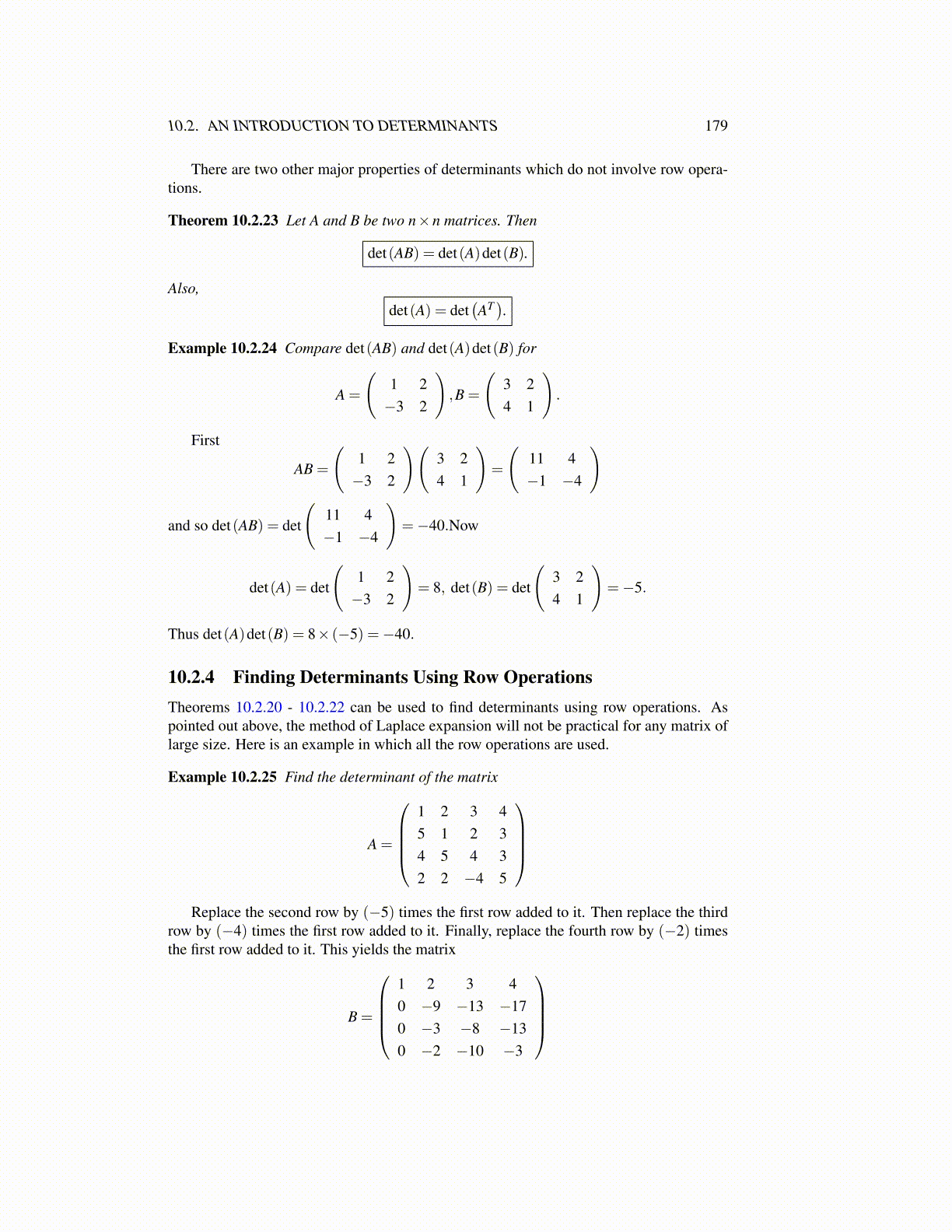
10.2. AN INTRODUCTION TO DETERMINANTS 179
There are two other major properties of determinants which do not involve row opera-tions.
Theorem 10.2.23 Let A and B be two n×n matrices. Then
det(AB) = det(A)det(B).
Also,det(A) = det
(AT).
Example 10.2.24 Compare det(AB) and det(A)det(B) for
A =
(1 2−3 2
),B =
(3 24 1
).
First
AB =
(1 2−3 2
)(3 24 1
)=
(11 4−1 −4
)
and so det(AB) = det
(11 4−1 −4
)=−40.Now
det(A) = det
(1 2−3 2
)= 8, det(B) = det
(3 24 1
)=−5.
Thus det(A)det(B) = 8× (−5) =−40.
10.2.4 Finding Determinants Using Row OperationsTheorems 10.2.20 - 10.2.22 can be used to find determinants using row operations. Aspointed out above, the method of Laplace expansion will not be practical for any matrix oflarge size. Here is an example in which all the row operations are used.
Example 10.2.25 Find the determinant of the matrix
A =
1 2 3 45 1 2 34 5 4 32 2 −4 5
Replace the second row by (−5) times the first row added to it. Then replace the third
row by (−4) times the first row added to it. Finally, replace the fourth row by (−2) timesthe first row added to it. This yields the matrix
B =
1 2 3 40 −9 −13 −170 −3 −8 −130 −2 −10 −3